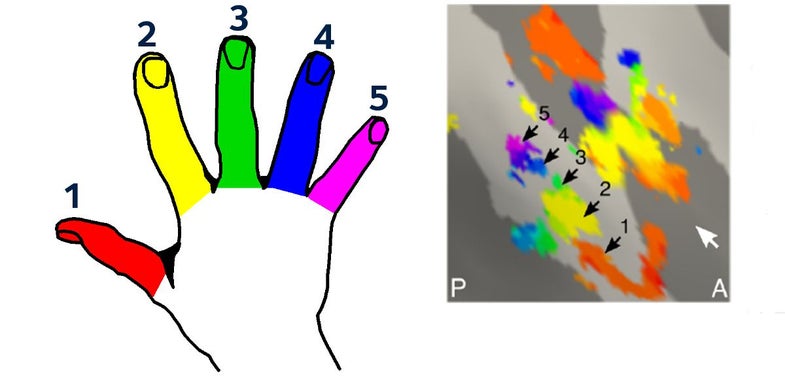Researchers Uncover Basis Of Amputee Phantom Sensations
Implications for how we understand amputees and prosthetics

Researchers have painted a map of the brain’s relationship with appendages.
The medical consensus, until now, was that the brain “overwrites” information when it stops receiving regular sensory input from a body part. If it’s gone, why hold space for that part? A new study out of the University of Oxford, United Kingdom, shows that even if fingers or hands have been amputated, they leave their fingerprints on their corresponding parts of the brain.
“We wanted to look at the information underlying brain activity in phantom movements, to see how it varied from the brain activity of people moving actual hands and fingers,” team leader Dr. Tamar Makin told University of Oxford news.
By studying brain activity in people who’d lost control of their hands or who were amputees, the researchers were able to see that their phantom sensations matched those of a person with two hands.
“This would remove a barrier to neuroprosthetics — prosthetic limbs controlled directly by the brain — the assumption that a person would lose the brain area that could control the prosthetic,” said study lead Sanne Kikkert.